How much does it cost to build a house in Poland?
How much does it cost to build a house in Poland as a UK expat? Find out in our essential guide, covering everything you need to know.
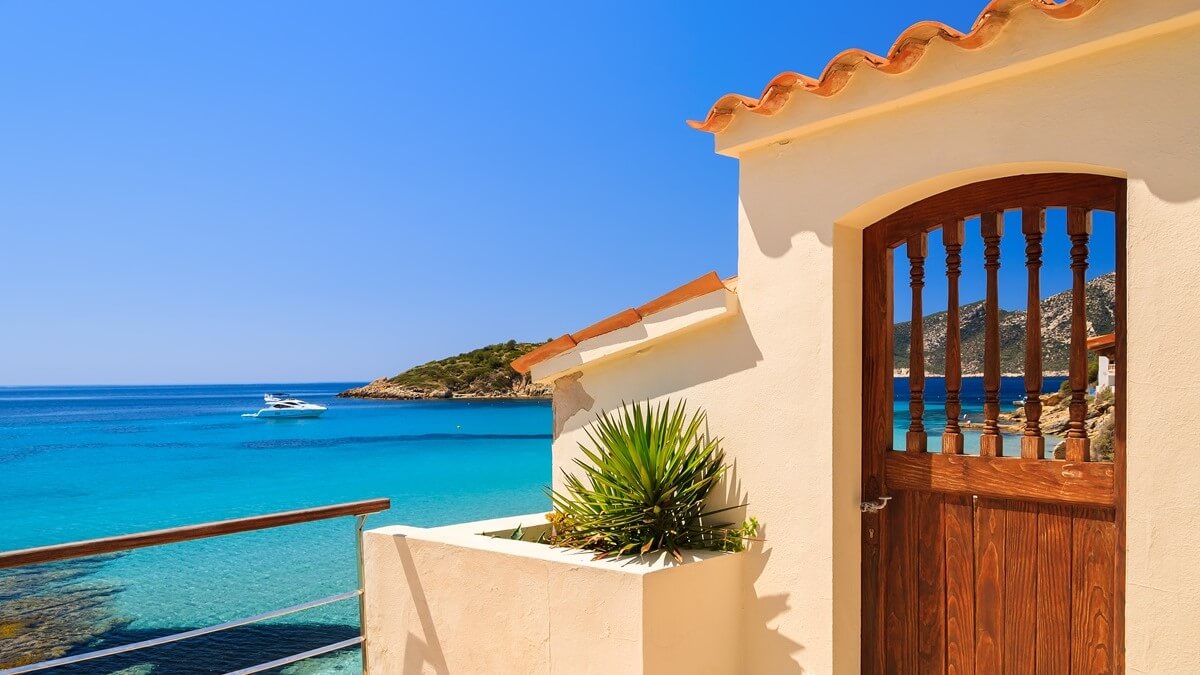
Want to build your own house abroad? Spain could be the perfect choice, boasting beautiful weather, fabulous food and it's just a short hop from the UK by plane.
But the big question is: how much does it cost to build a house in Spain? And how do you go about it as a UK national?
Find out everything you need to know here in this essential guide. We’ll run through the process of buying land and getting permission to build, along with the main fees, taxes and other costs of building a house in Spain.
We’ll also look at the best way to pay for overseas building work in EUR, using low-cost solutions such as the Wise account.
There are many reasons why you might want to build a house in Spain.
One of the main attractions is the chance to build your dream house in the perfect location, whether that’s near one of Spain’s vibrant cities or in a rural or seaside location.
It may also be cheaper to build your perfect home rather than buy a property abroad, especially in expensive areas.
Lastly, you might want to build overseas property as a rental property or investment.
There aren’t any restrictions or special requirements for foreigners buying properties in Spain, or buying land to build on.1
However, you’re likely to need a foreigner identification number, or Número de Identificación de Extranjero (NIE).1
Fancy the idea of taking on a self-build project and managing it all yourself? You can do this in Spain, but it’s strongly recommended to appoint some professionals along the way.
For example, you’ll need help navigating national and local building regulations, and making sure you get planning permission for your build. And of course, you’ll need skilled builders and tradespeople to make sure your new home meets Spanish building codes.
The very first step on your self-build adventure is to find a plot of land to buy in Spain.
There are two types of land generally available for sale in Spain. These are *urbano *(urban) and *rustico *(rural).2
Generally speaking, urbano land is suitable for building while *rustico *is considered green belt and development isn’t usually permitted. But in some cases, urbano land is on the edge of rural areas, and there are rare circumstances where rustico land can be built on.2
You’ll also need to check the Plan General de Ordenación Urbana at the local town hall to find land that has been marked for construction. There’s also suelo urbano land, where not only can you build but you don’t necessarily need full planning permission.2
A local lawyer will be very helpful in finding a suitable piece of land for building.
To start your search, you can use a local estate agent or one specialising in overseas property and land sales. Or you can start your search online, using sites such as:
The process of purchasing land in Spain usually looks something like this:4
You can build on your own land in Spain, but only if it is urbano land designated as suitable for building. If it’s rustico land, you’ll need to check with the regional government to confirm whether or not construction is permitted there.
You’ll also need planning permission. It’s important to check the local rules for building in the specific area of Spain you’re interested in. There may be restrictions or conditions that affect your plans.
You may find it difficult to get permission to build on undeveloped land in Spain. In most cases, it is categorised as rustico land and therefore unsuitable for building.
For other plots, you may be able to contact the local planning department to find out about the potential for building on it.
You should also bear in mind that rural plots can be difficult to build on, even if you do manage to get permission. The site may not be connected to mains services, and the terrain itself may not be stable or suitable for excavation or building. Access for construction vehicles may also be a problem.
In order to build a house in Spain, you’ll need to apply for planning permission. In Spain, this is called a building licence. For a new build, you’ll need to apply for a Licencia de Obra Mayor (licence for major works).3
You’ll need to apply for this from the local authority governing the area you want to build in. The process for approving applications can vary from region to region.
Before submitting your application, it’s important to check with the local planning authority what exact documents you’ll need. Otherwise you could face delays or in the worst case scenario, your application being rejected.
The time it takes for a building licence to be approved varies considerably between regions. And of course, it depends on the simplicity or complexity of your plans.
But generally, you can expect it to take anywhere between 2 to 6 months for your application to be approved.4
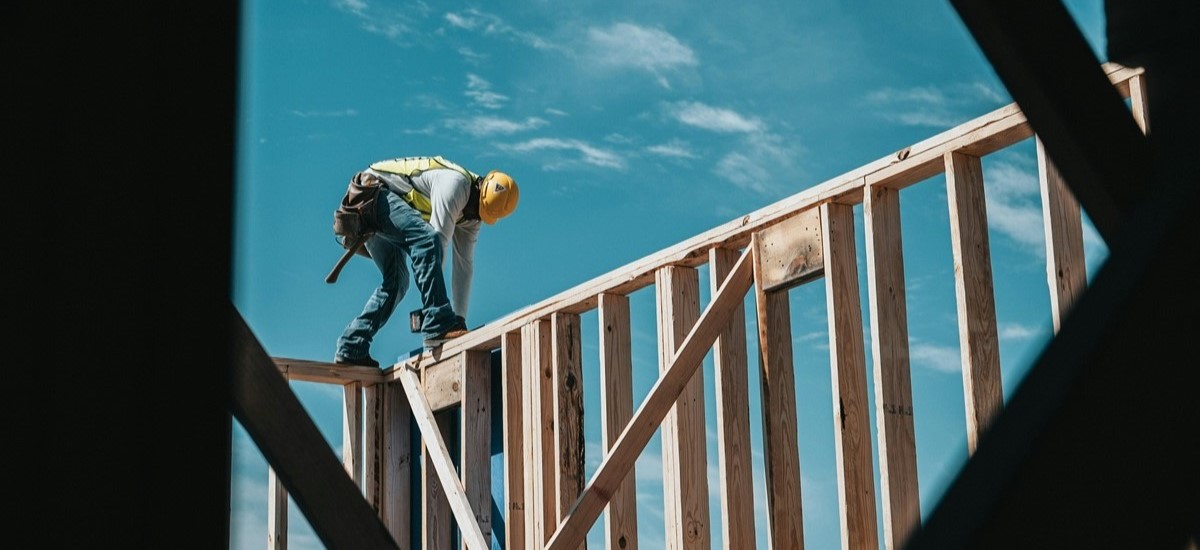
Now we turn to the crucial matter of building costs in Spain and how much you’ll have to pay to get your dream home.
There are many different fees and taxes to factor in, and lots of people to pay including your architect and building contractors.
Architect’s fees in Spain will vary depending on the size, scope and specifications of the project, as well as the location. Some architects may charge a fixed fee, an hourly/daily rate or a percentage of the overall construction costs.
As a rough guide, you can expect architect’s fees in Spain to be around 5% to 17% of the total build cost.5
Building work in Spain generally costs around €800 to €1,500 EUR (£673 to £1,262 GBP) per square metre.6
This is cheaper than the UK, where on average it costs £1,200 to £1,500 GBP per square metre to build a home.7
The average salary for a builder in Spain is around €14.91 EUR (£12.54 GBP) an hour, or €31,008 EUR (£26,083 GBP) a year.8
You can expect to pay anywhere between 4% and 6% of your project’s overall cost to get your building licence⁹ However, it varies between regions and their local authorities.
Alongside the fee for your building licence, there may also be additional taxes you need to pay. These may apply for buying land to build on, as well as for construction works.
Here are the main taxes you need to know about:
If you’re buying land from a business, you’ll also need to pay VAT of 21% and stamp duty of 2.1%.10
Now, let’s take a look at some of the challenges you may need to overcome when building a house in Spain.
A building licence is usually a key requirement in order to legally build on a plot of land you own.
In Spain, the main permit you will need to build a new house is a building licence.
There are two types:3
The former is for new builds and major structural works, while the latter is for people who are renovating property in a way that doesn’t affect the main structure or façade of the building.
To apply for a Licencia de Obra Mayor for a new build in Spain, you’ll usually be asked to submit the following:9
Some land in Spain is marked as protected (protegido). This means that you’d need approval from bodies relating to environmental protection, river and water authorities, wildlife protection and/or national parks in order to build a house on it.11
This can be a real headache, so it’s a good idea to check the Plan General de Ordenación Urbana at the town hall, or the Nota Simple in the land registry.
If you’re interested in buying coastal land, you should also check whether Spain’s coastal demarcation laws may prohibit you from building.
And before starting any building work, you’ll also want to check that the terrain is stable enough for excavation and building.
In most parts of Spain, you can build what you like (within reason, and within local zoning and planning regulations).
However, style and aesthetic restrictions may apply in certain areas - with the rules being particularly strict in historic centres.
So, it’s important to check whether there are any restrictions or laws in the local area governing how your new building should look.
If you’re not fluent in Spanish, it’s a smart idea to appoint a multilingual project manager - or hire a translator.
You should also aim to get any agreements in writing, and have those agreements translated into English. Otherwise, the risk of miscommunication and misunderstandings is high.
You’ll also need to think about how you’ll pay your Spanish contractors, builders, tradespeople and architects in euros. You’ll need to make sure you’re not losing out to currency conversion, so opening a local bank account could be a good idea.
Alternatively, open a Wise account online and you can make fast, secure payments in EUR for low fees* and mid-market exchange rates. It’s a low cost option that could save you money throughout the project.
It’s recommended to do some research on the cost of construction materials while putting together your budget.
On average, the cost of concrete in Spain is around €130 EUR (£109 GBP) per square metre, with steel averaging €95 EUR (£79 GBP) a square metre and timber costing around €195 EUR (£163 GBP) per square metre.12 However, remember that prices can and do fluctuate.
You’ll need to speak to your building contractor about available payment methods, but bank transfer or cash are likely to be the most commonly accepted.
Since the UK left the EU, Brits owning second homes in Europe have been subject to the ‘90 day rule’. This stipulates that they can only spend a maximum of 90 days within a total period of 180 days in an EU country.
So unless you move permanently and get a visa, you may be limited to how much time you can spend in your overseas holiday home.
This rule applies to Spain, but there’s a possibility it may change - especially now that France has amended its laws to grant automatic long-stay visas to British second homeowners with properties in France.
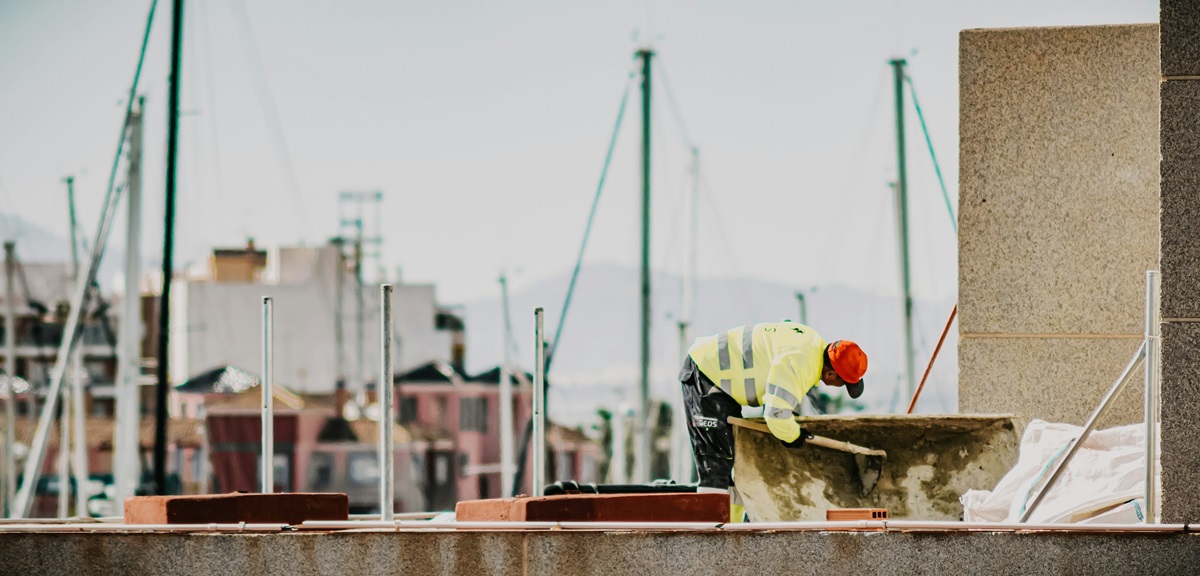
The amount you’ll need to build a house in Spain will vary considerably depending on where you’re building, what size property and the specifications of the project.
As a ballpark figure, you can expect to pay roughly between €800 and €1,500 EUR (£673 to £1,262 GBP) per square metre to build a house in Spain. This equates to €96,000 to €180,000 EUR (£80,722 to £151,353 GBP) for a 120 square metre property.6
To calculate your own construction costs, you’ll need to multiply this by the square metre size of your planned property.
You’ll also need to factor in architect fees, building permit application fees, taxes and other associated costs.
It isn’t mandatory to have a Spanish bank account in order to build a house in the country.
However, you could find it difficult to cover your costs and pay international bills without one.
There are a few different ways you can pay expenses in Spain, while still based in the UK.
You can use your bank, but bear in mind that there may be relatively high fees related to sending money overseas. You may also lose out to currency conversion, as banks often add a margin to the mid-market exchange rate.
Another option is to use a specialist money transfer service like Wise. Open a Wise account and you can use the dedicated service for large amount transfers to send money safely and securely overseas.
Open a Wise account at the start of your project and you’ll be able to quickly and easily send money between the UK and Spain. This is a good way to keep currency exchange costs down, and make sure everyone gets paid on time.
There’s even dedicated support for large amount transfers, essential when you’re buying land or property, or paying large bills.
It’s fast, low cost and guarantees you mid-market exchange rates with no margin on top*.
It all depends on the complexity and size of the house you’re building, but you should plan for up to 2 years of construction work.
You also need to factor in time to find and buy your plot, and to complete the admin to get your building permit.
The size of property you’ll be permitted to build will be set by the local authority
according to its zoning plan and the designation of the plot itself.
If you own a house in Spain as a UK national and you don’t live there, you’ll need to pay a non-resident income tax. It’s based on the cadastral value of the property, and the rate is a rather hefty 24%.13
Whether you live there or not, there’s also the local property tax to pay. This is known as Impuesto sobre Bienes Inmuebles (IBI) and the rate varies between regions.13
📚 Read: Overseas property and tax
If you’ll be moving to Spain once your house is built, you might be interested to know about the Golden Visa scheme. This grants temporary residency to foreign nationals who invest in the country, which includes buying property in Spain.
For real estate, the minimum investment is €500,000 EUR (£420,427 GBP) and you’ll need to check whether that includes buying a plot of land.14
If you are eligible for a Golden Visa, it lasts a year and can be renewed for up to 5 years. After that time, you’ll be eligible to apply for permanent residency and then citizenship.14
While it depends where and what you buy, the average house price in Spain is around €661,460 EUR (£556,191 GBP).15 However, some areas will be much cheaper.
It’s slightly cheaper to build a house in Spain than in the UK.
The average building cost in Spain is €800 to €1,500 EUR (£673 to £1,262 GBP) per square metre.6
While in the UK, it costs £1,200 to £1,500 GBP per square metre to build a home.7
Houses in Spain tend to be built of brick, although there are a few different materials used.
In most regions of Spain, having a caravan on your property permanently is not permitted. It may only be allowed temporarily, while building works are being carried out.
Generally speaking, camping of any kind is only really permitted in specially designated camping zones.16
Sources used:
1. Expatica - buying property in Spain
2. Spain Property Guides - building your own home in Spain and types of land
3. Zest Architecture - licence and construction terminology in Spain
4. Eco Vida Homes - planning permission Spain
5. Eco Vida Homes - Spanish architect fees
6. Idealista - price per square metre to build a house in Spain
7. Purple Bricks - price per square metre to build a house in the UK
8. Salary Expert - average Spanish construction worker salary
9. Idealista - building permit fees
10. Terra Meridiana - purchase taxes in Spain
11. Eco Vida Homes - info on buying protected land
12. Idealista - ost of building your own home in Spain
13. Iberian Tax - tax obligations for UK citizens with property in Spain
14. Get Golden Visa - info on Spain Golden Visa
15. Spainhouses.net - average house prices in Spain
16. EuroWeekly News - rules on caravans and motorhomes in Spain
Sources last checked on date: 30-Aug-2024
*Please see terms of use and product availability for your region or visit Wise fees and pricing for the most up to date pricing and fee information.
This publication is provided for general information purposes and does not constitute legal, tax or other professional advice from Wise Payments Limited or its subsidiaries and its affiliates, and it is not intended as a substitute for obtaining advice from a financial advisor or any other professional.
We make no representations, warranties or guarantees, whether expressed or implied, that the content in the publication is accurate, complete or up to date.
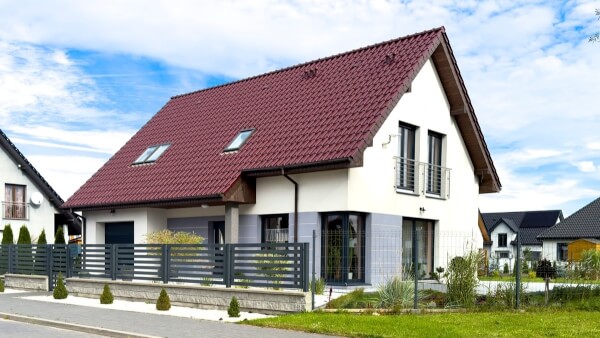
How much does it cost to build a house in Poland as a UK expat? Find out in our essential guide, covering everything you need to know.
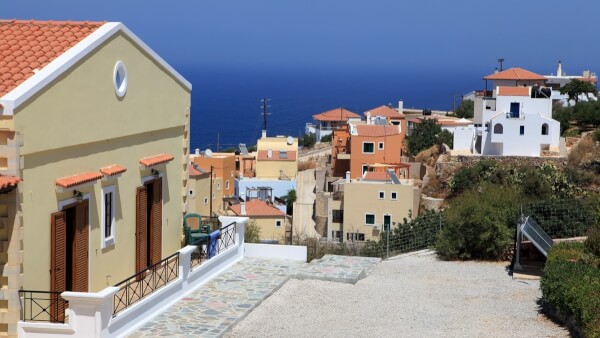
How much does it cost to build a house in Greece as a UK expat? Find out in our essential guide, covering everything you need to know.
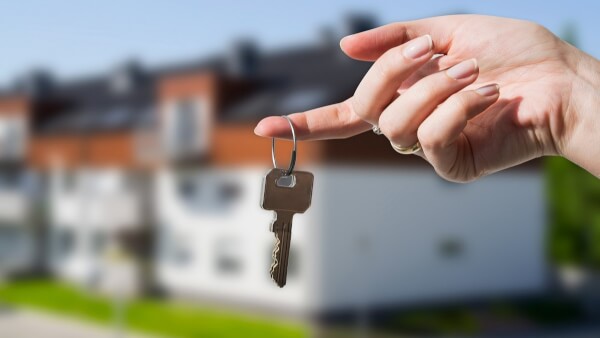
Read our comprehensive guide to buying a house abroad, including how to arrange finance for overseas property purchases.

Read our roundup of 8 of the best places to buy land in the world as a Brit, looking at average land prices, buyer’s costs and more.

Read our guide to selling property in India and bringing money to the UK, covering taxes, transfer methods and other essential information.

Read our essential guide to investing in US farmland from the UK, including rules on foreign land ownership, average prices per acre, and much more.